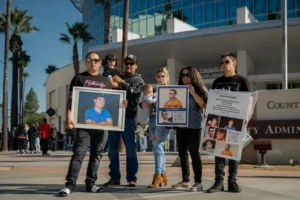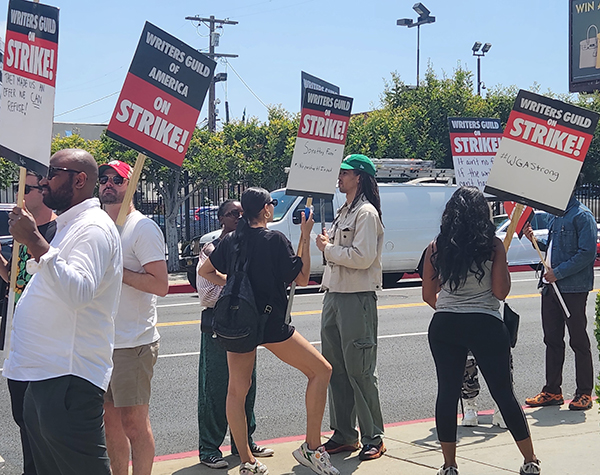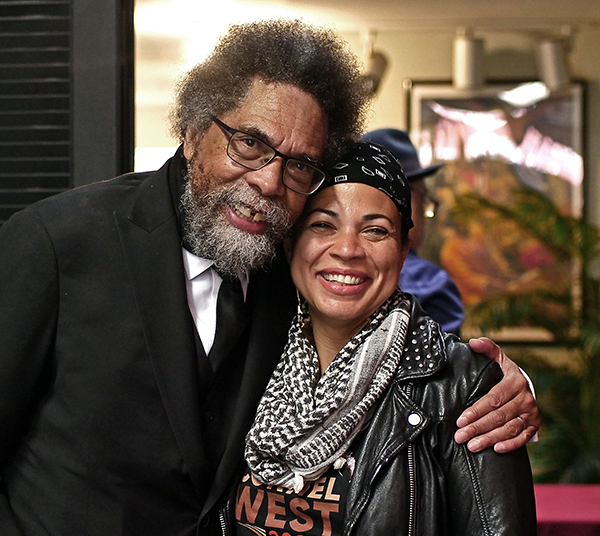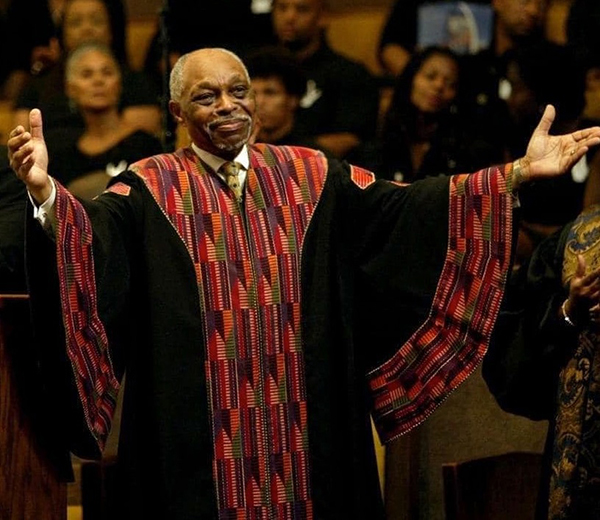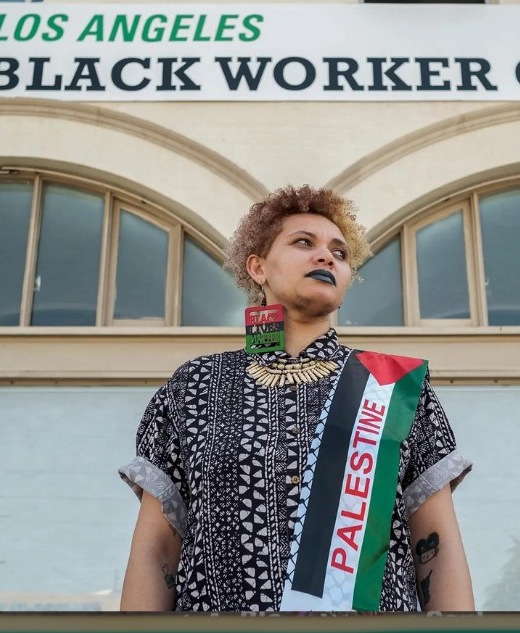By Anita Bennett
Contributing Writer
HOLLYWOOD — “It’s unacceptable.”
That was the recurring theme from striking writers and their supporters outside Paramount Studios May 10, as they discussed what film and TV studios offered the Writers Guild of America before contract talks broke down earlier this month.
Hundreds of writers descended on the movie studio throughout the day, as Black writers hit the picket line on a day set aside tp recognize Black talent.
“A few amazing women of color put this together and they just put the word out on social media,” said Jonathan Butler, who spent five writing on The CW series “The Flash.”
Butler said it’s becoming increasingly more difficult to earn a living as a writer as the industry changes.
“These studios want to create a situation where we get paid by the script and not have a career so they can make more money and we find that unacceptable,” Butler said.
“We have to stick together,” he added about the writers of all races walking the picket line. “This for the next generation of writers that come after us, so they can have a career and raise a family.”
A WGA rep said about 1,000 people walked the picket line outside Paramount.
The writers were joined by teamsters, producers, directors, and “Titanic” actress Frances Fisher, “9-1-1” star Aisha Hinds and “Reasonable Doubt” star Emayatzy Corinealdi.
“It’s about solidarity,” Corinealdi said. We cannot act if we don’t have words, so it’s important that the message is getting across that we have to come together. The writers have to be paid. They have to be paid their fair wages.”
Hinds added: “It’s important for us to band together. That is where our power lies and we need to ensure that we are working together to support one another in being about to get fair wages for our writers.”
A scheduled appearance by Vice President Kamala Harris at an MTV mental health awareness event in Carson next week has become one of the latest casualties of the strike as it continues for a second week.
The Los Angeles Times reported May 9 that Harris canceled her planned May 18 appearance to avoid crossing a picket line of striking WGA members.
Harris was set to appear alongside a surprise celebrity guest and young leaders at a Cal State Dominguez Hills town hall to raise awareness of Mental Health Action Day, according to The Times.
Sources familiar with Harris’ plans told The Times they hope the event will be rescheduled.
Her decision came one day after President Joe Biden expressed support for striking writers, his first comments about the work stoppage.
“I sincerely hope the strike gets resolved, and writers are given a fair deal as soon as possible,” Biden said May 8 at a White House screening of “American Born Chinese” in celebration of Asian American, Native Hawaiian and Pacific Islander Heritage Month.
“This is an iconic, meaningful American industry and we need the writers — and all the workers — to tell the stories of our nation, and the stories of all of us.”
WGA negotiators said no new talks are scheduled with the Alliance of Motion Picture and Television Producers, which represents the studios, and none are expected in the coming days with some observers saying the strike could last for months.
One of the key issues for writers is streaming residuals.
Rae Benjamin, a Los Angeles resident and writer for the Netflix series “The Witcher,” said, “For me, streaming residuals are really important.”
“Whenever they re-air an episode television writers would get a check based upon that,” she said. “When network shows were the only options, content was constantly re-aired, and it really rewarded people who worked on a popular show. You could be making money from that show years and years later, because it’s in syndication.”
Benjamin, one of the few Black writers in Hollywood, says the compensation structure is different for streaming companies like Netflix.
“They refuse to release data on how many people actually watch your shows, even though it’s easy to do,” she said. “Because they’re refusing to do that we could not get accurately paid for our work. We can’t get paid the residuals and streaming that we’re owed.”
In the past decade, streaming platforms, particularly Netflix, have disrupted the traditional cable television model by producing new shows with shorter seasons in an effort to attract new subscribers.
Last week, the Alliance of Motion Picture and Television Producers offered annual salary increases for writers and made other concessions, but the WGA has yet to respond to the proposal.
“When you see what was put on the table, and then you see that the producers negated most things, even proposals such as making sure that we’ll have jobs and not robots take our jobs, and there’s no proposal for that. No counter for that,” Benjamin said. “It’s a little scary to think that, hey, there’s an [artificial intelligence] that might be able to write your entire show, and no one seems to be fretted about that at all.”
Maxim Elramsisy of California Black Media and City News Service also contributed to this story.




